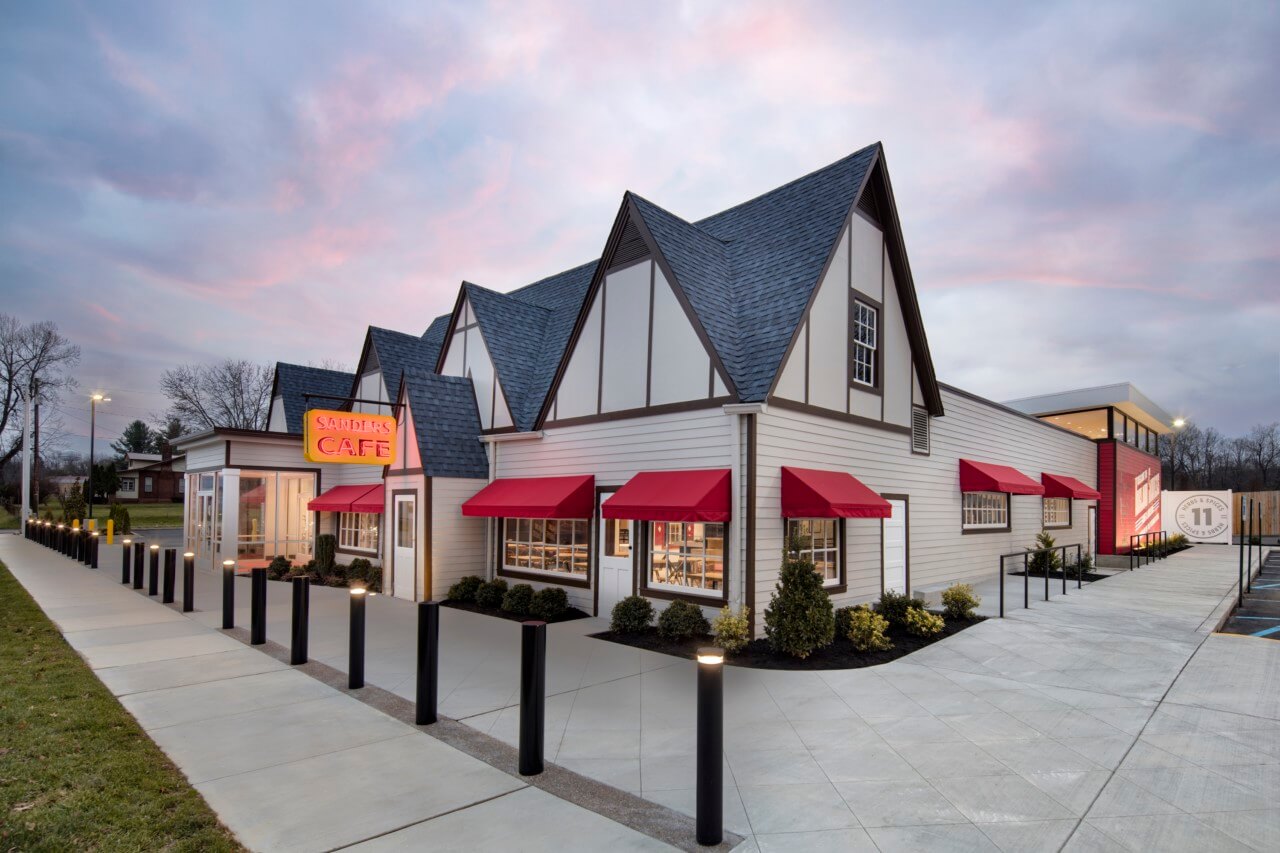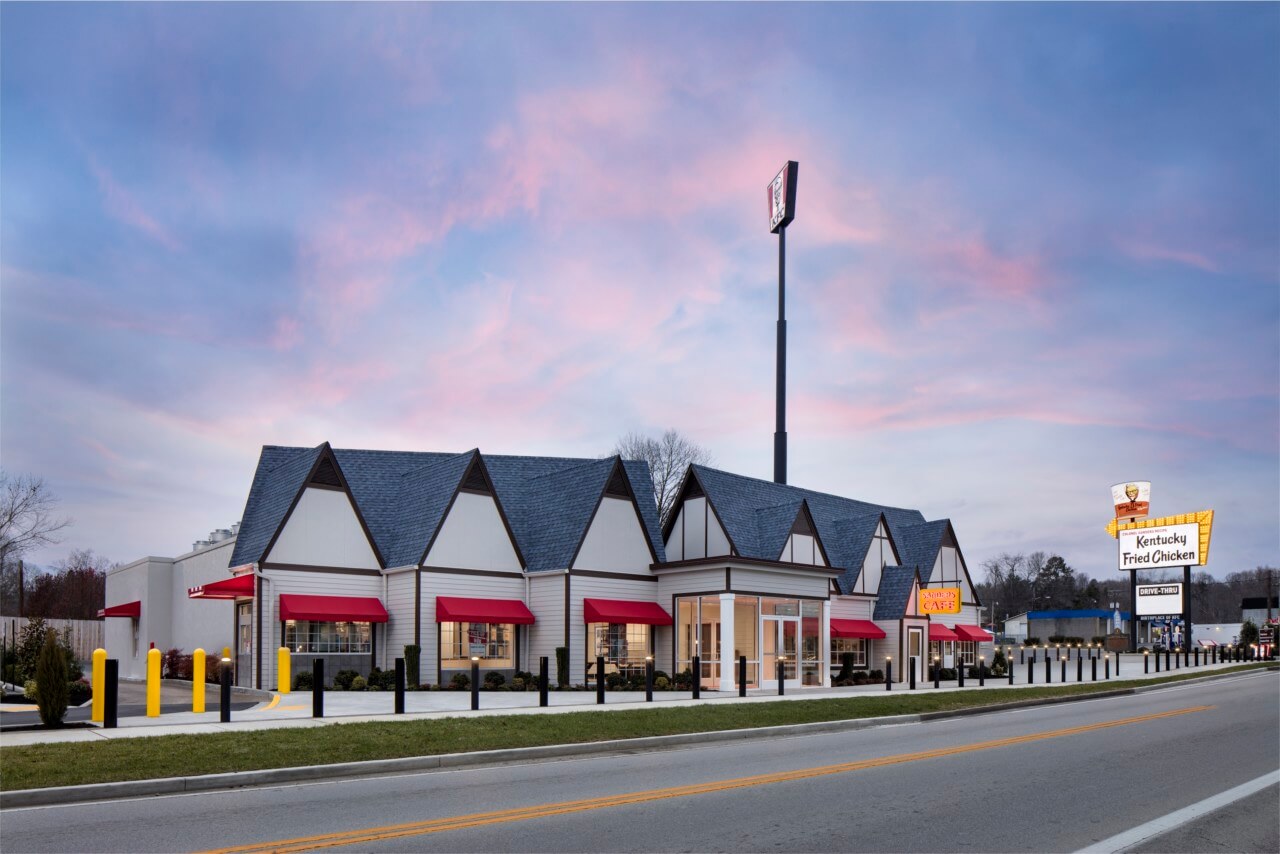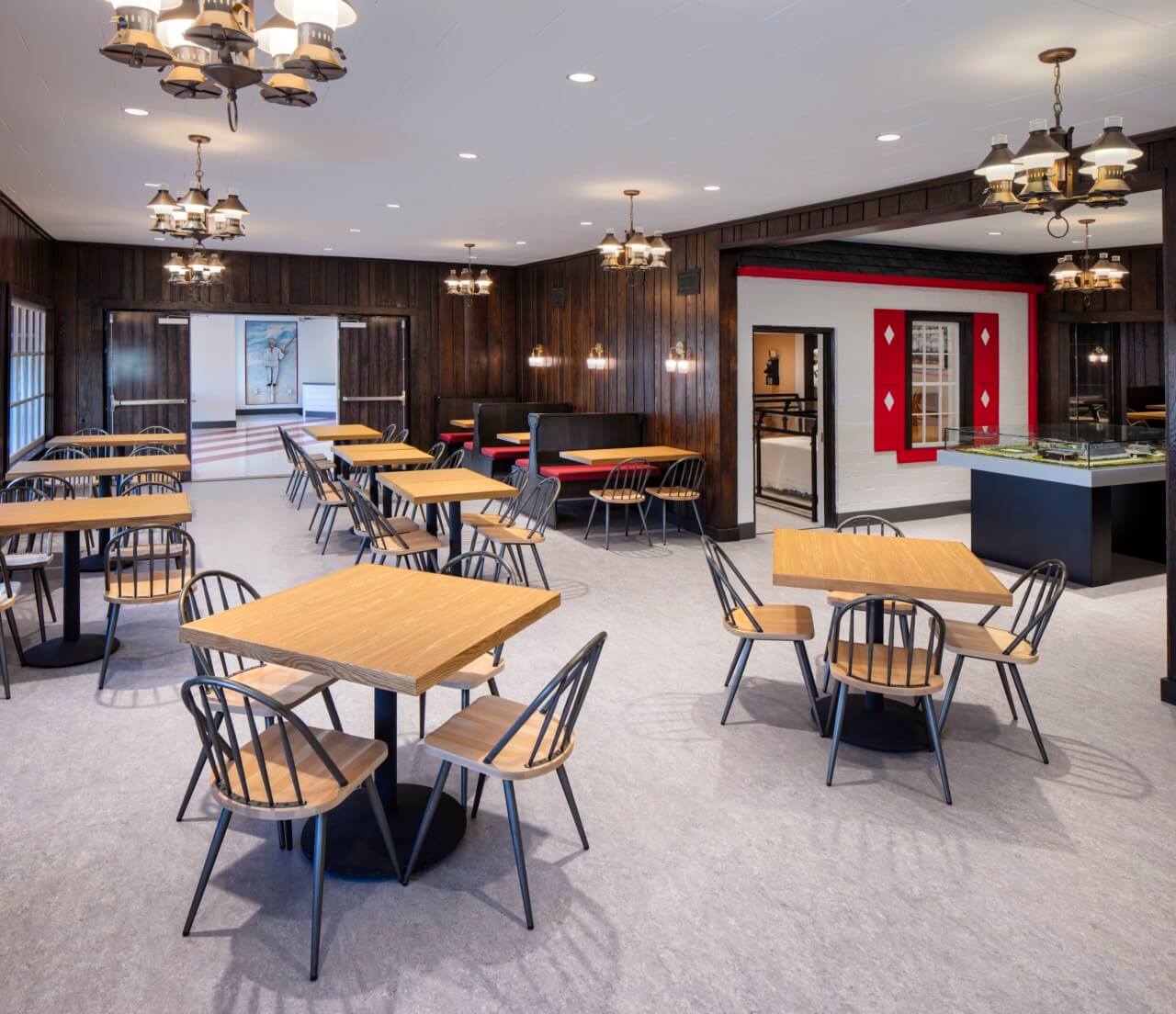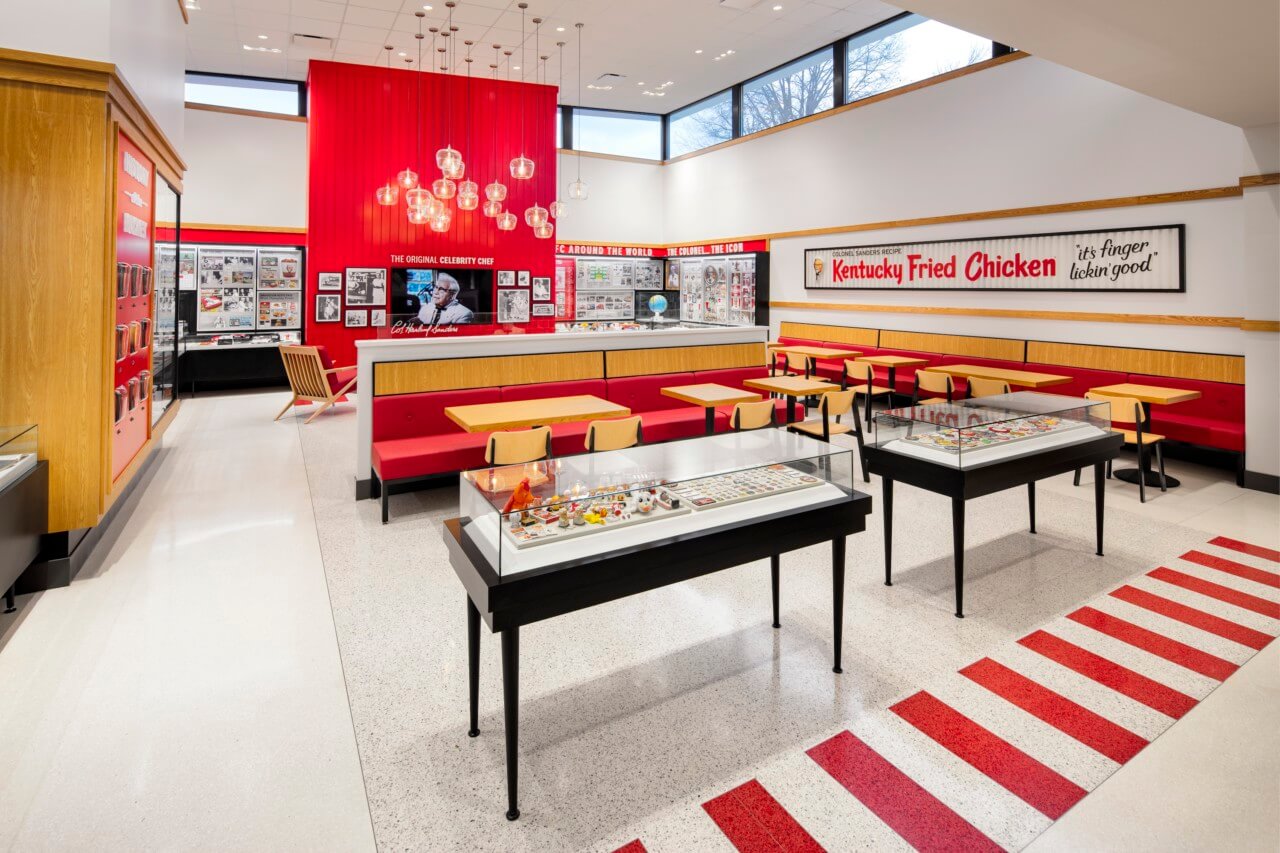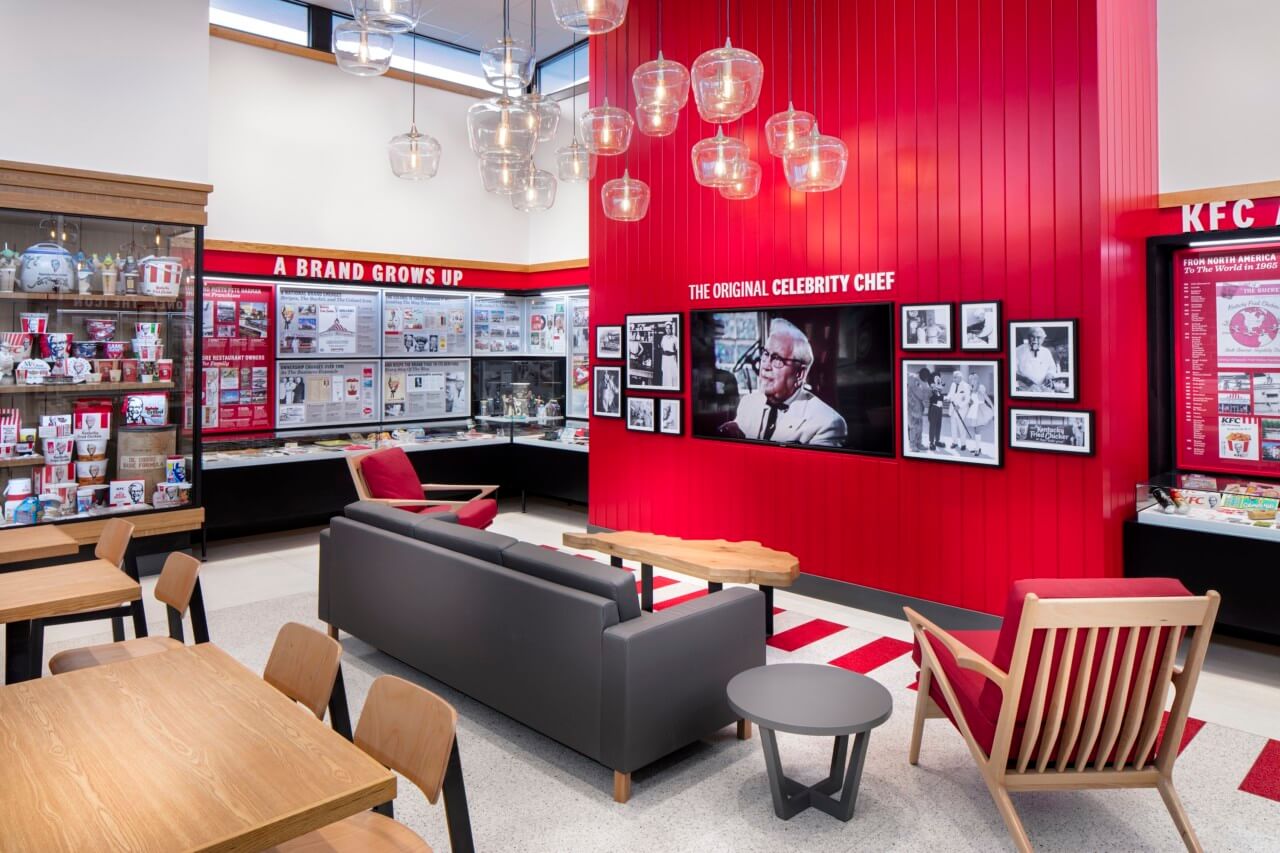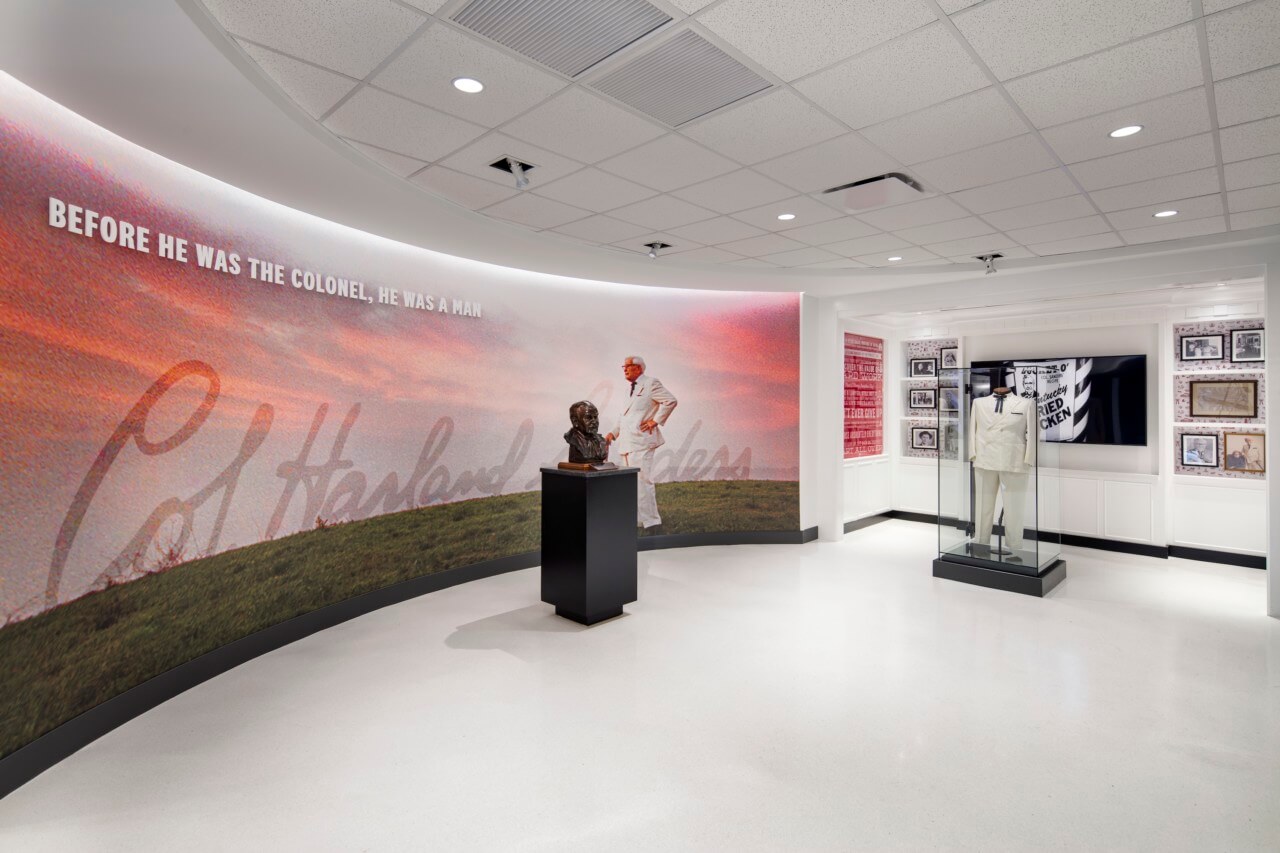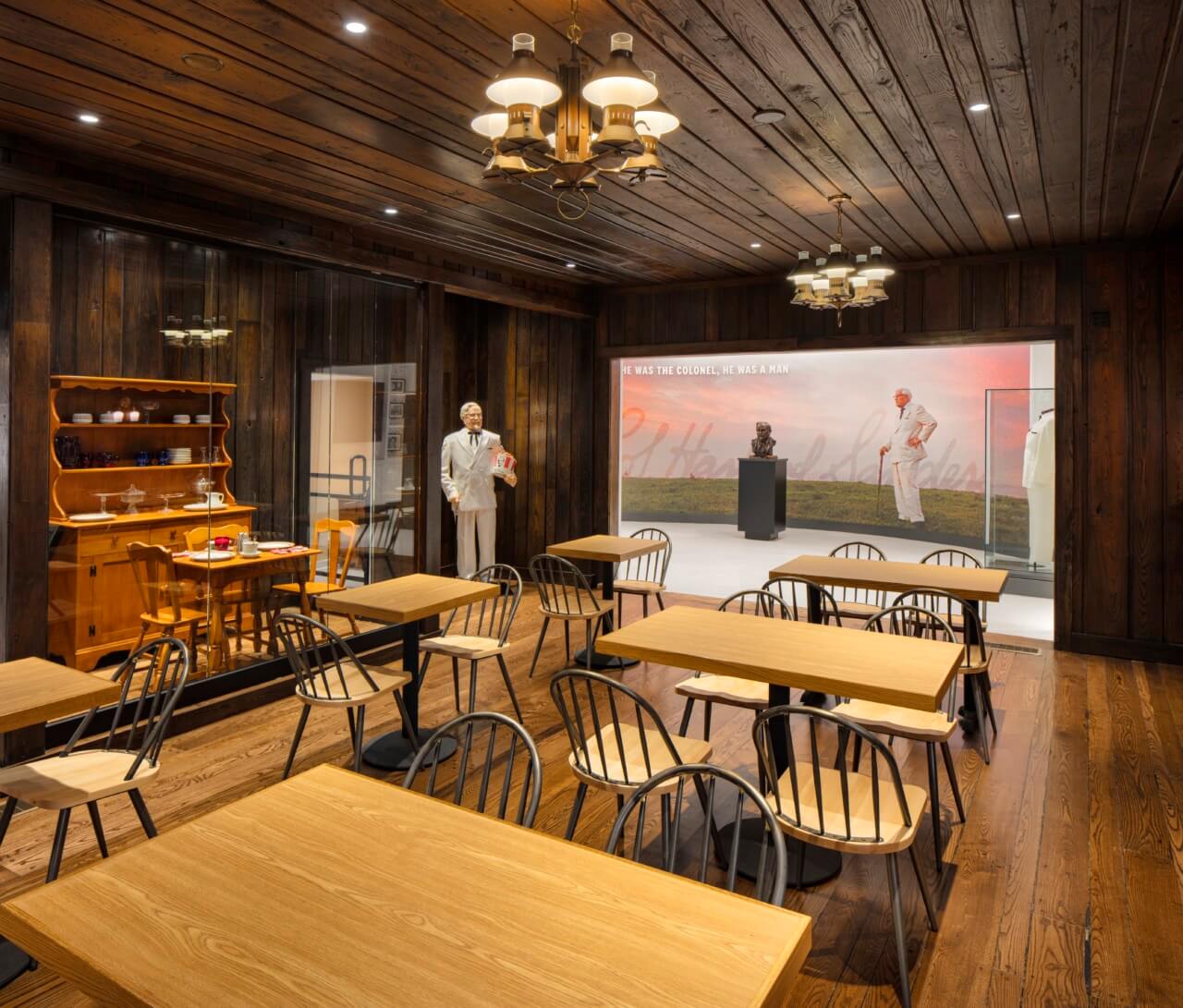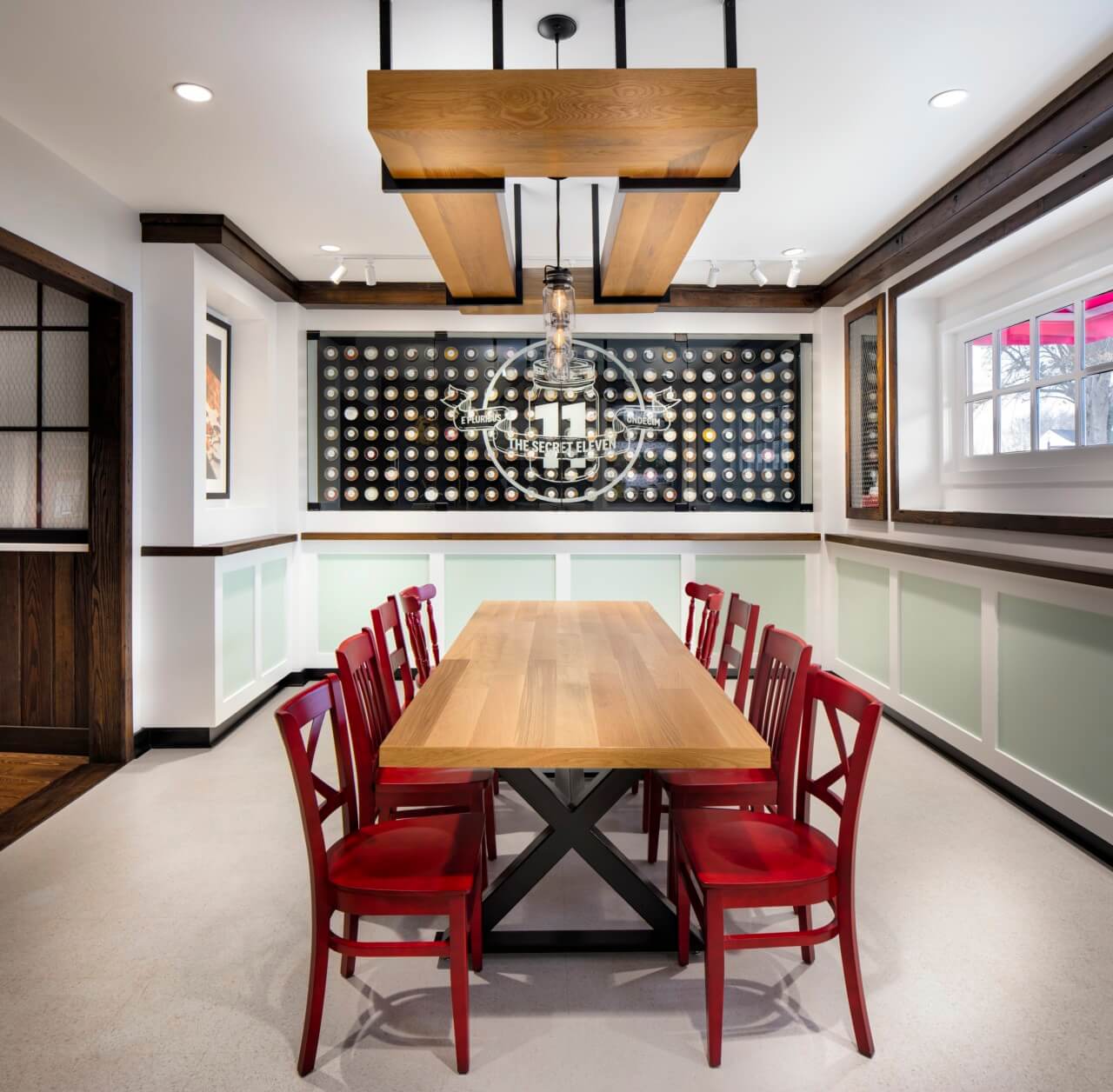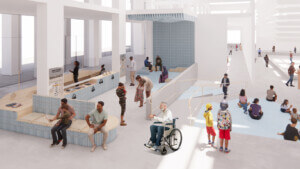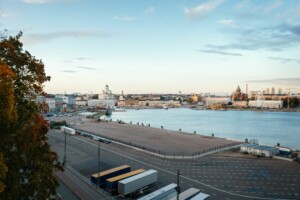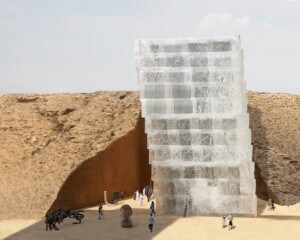The Sanders Cafe, a National Register of Historic Places-listed eatery and museum situated on a busy stretch of U.S. Route 25 in southeastern Kentucky, emerged earlier this year from an extensive, preservation-focused exterior and interior refresh that first kicked off in 2019. The storied roadside restaurant reopened to great fanfare in late April, an unveiling date that came a bit later than anticipated due to the pandemic. (It’s drive-thru, however, remained open during the renovation process.)
The Sanders Cafe is, of course, the ancestral home of Kentucky Fried Chicken, the Bluegrass State–born fast-food behemoth that today ranks as the world’s second-largest restaurant chain. Located in the city of Corbin, this is very same spot where filling station operator and string tie enthusiast Colonel Harland Sanders (not that kind of colonel) first wooed motorists off the highway with his scrumptious pressure-fried chicken prepared with a (still) secret recipe of 11 herbs and spices.
The current building, originally a restaurant-motel complex, opened in 1940 to replace the original Sanders Cafe, which was destroyed by fire the year prior. Sanders sold his Corbin cafe in 1956, five years after the first KFC franchise opened, not in Kentucky, but just outside of Salt Lake City. Facing demolition, the Sanders Cafe, which suffered a major blow years earlier when the opening of I-75 drew motorists away from Highway 25, was purchased in 1973 by KFC franchisees Linda and John R. Neal. They renovated the endangered highway-side restaurant and motel, transforming it into a regional destination known as the Sanders Cafe and Museum. The reimagined space opened in 1990 on what would have been Sanders’ 100th birthday. The historic gabled building was added to the NRHP that same year. (Best known as simply “the Colonel” in his later years, the Indiana-born Sanders died in 1980 at the age of 90, serving as a pop culture-famous brand ambassador for the company up until the end.)
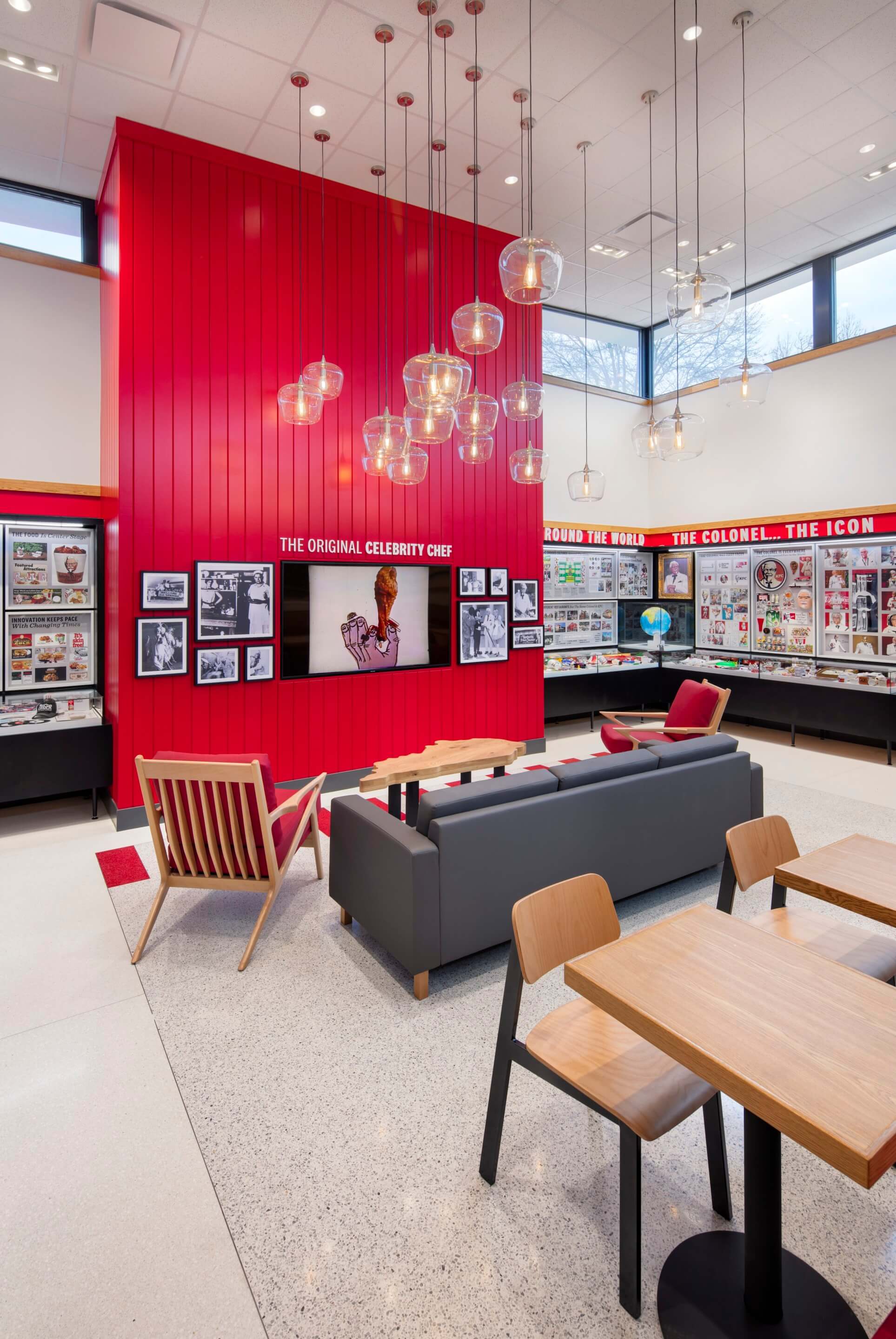
The Tennessee-headquartered company established by the Neals, JRN, Inc. continues to own and operate the Sanders Cafe to this day.
For the recently completed revamp, JRN tapped frequent KFC collaborator, the Minneapolis-headquartered multidisciplinary design firm NELSON Worldwide, to realize an overhaul that melds state-of-the-art exhibition design with ample throwback appeal meant to evoke the look and feel of the original cafe. Naturally, reverence to the goateed serial entrepreneur who started it all—the museum refers to Sanders as “the original celebrity chief”—was also a key consideration.
NELSON called this “one-of-kind” design concept a “Return to Roadside” approach.
“The KFC’s Sanders Cafe is hallowed ground for the brand where the Colonel crafted his secret recipe and welcomed guests to his very own dining room table to share his passion for chicken. Our approach was to honor that heritage and be mindful to create a ‘sympathetic addition’ that did not detract from the existing charm while creating a curated guest experience that tells the brand’s story,” explained Garrett Rice, design director with NELSON Worldwide, in an emailed statement. “We carefully built upon the current design, respecting and emphasizing historical spaces and balancing it with modern, interactive elements to create a destination-worthy experience that builds on the Colonel’s legacy of hospitality, showmanship, and quality.”
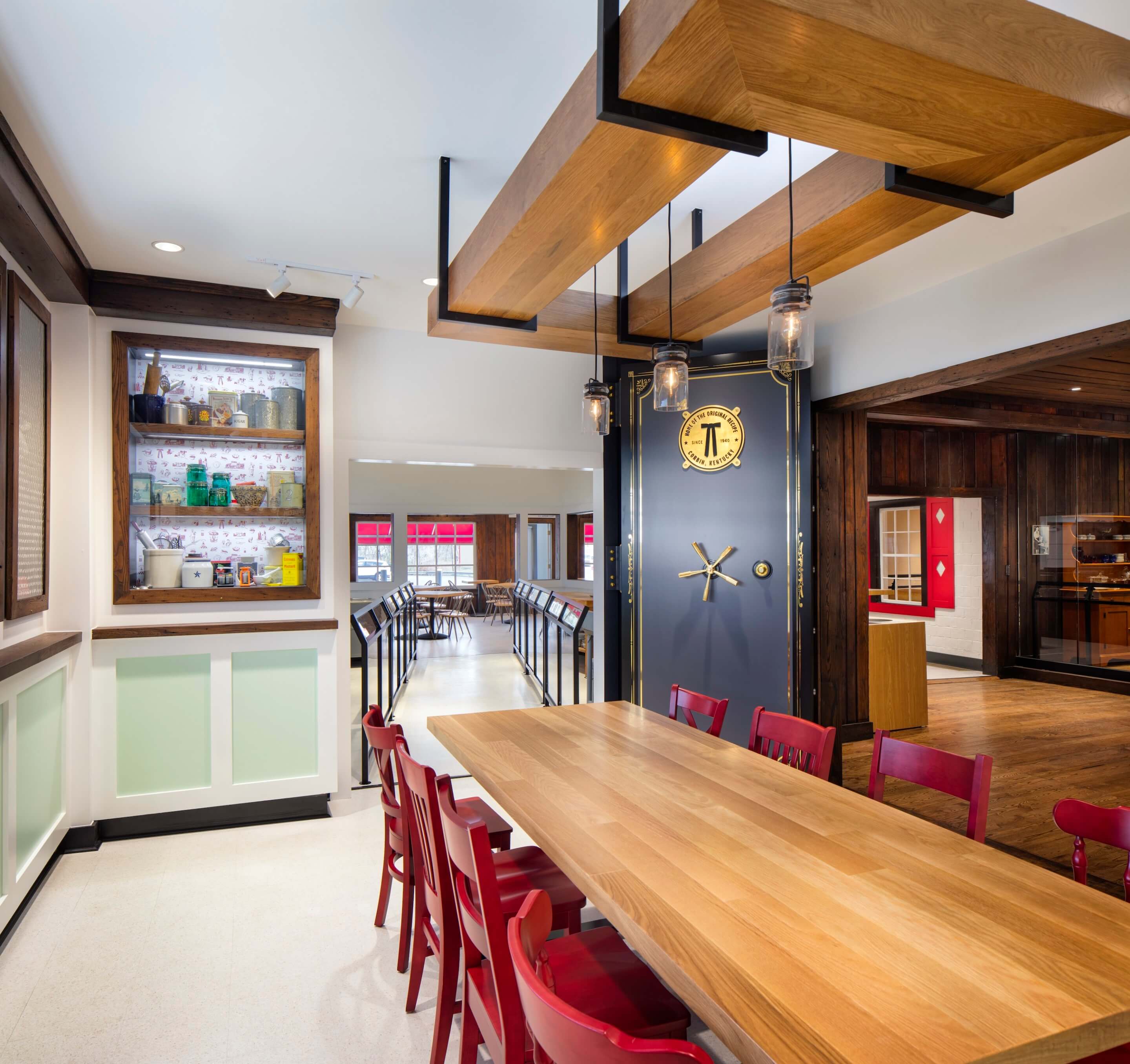
As detailed by the firm, major elements of the renovated restaurant and museum include iconic signage and “historically-inspired” lighting along with a walk-through timeline museum experience that features low-tech displays with interactive overlays, a bevy of KFC-related artifacts, and no shortage of touch-less photo-ops throughout. “Clean expressions are consistent within and keep the attention on the artifacts and ensure a more immersive connection with the space, while also providing a contrast to the historic dining room,” NELSON Worldwide detailed in a design brief.
There’s also test kitchen that “pays homage to the process of perfecting the Colonel’s recipe.”
What’s more, a bevy of mid-century design elements and “retro-inspired furniture selections” can be found throughout the revitalized space, particularly in an immersive room vignette dubbed Colonel Harland Sanders’ Iconic Sitting Room, which was inspired by the interior of Sanders’ former private residence located directly adjacent to the cafe. (Owned by JRN since 2007, the home is also reportedly undergoing extensive renovations.) Meanwhile, in the main dining room of the restaurant, “wormy chestnut paneling from the original dining room has been kept to embellish and stay on par with the warm and inviting look that the Colonel intended for the room,” the firm explained.
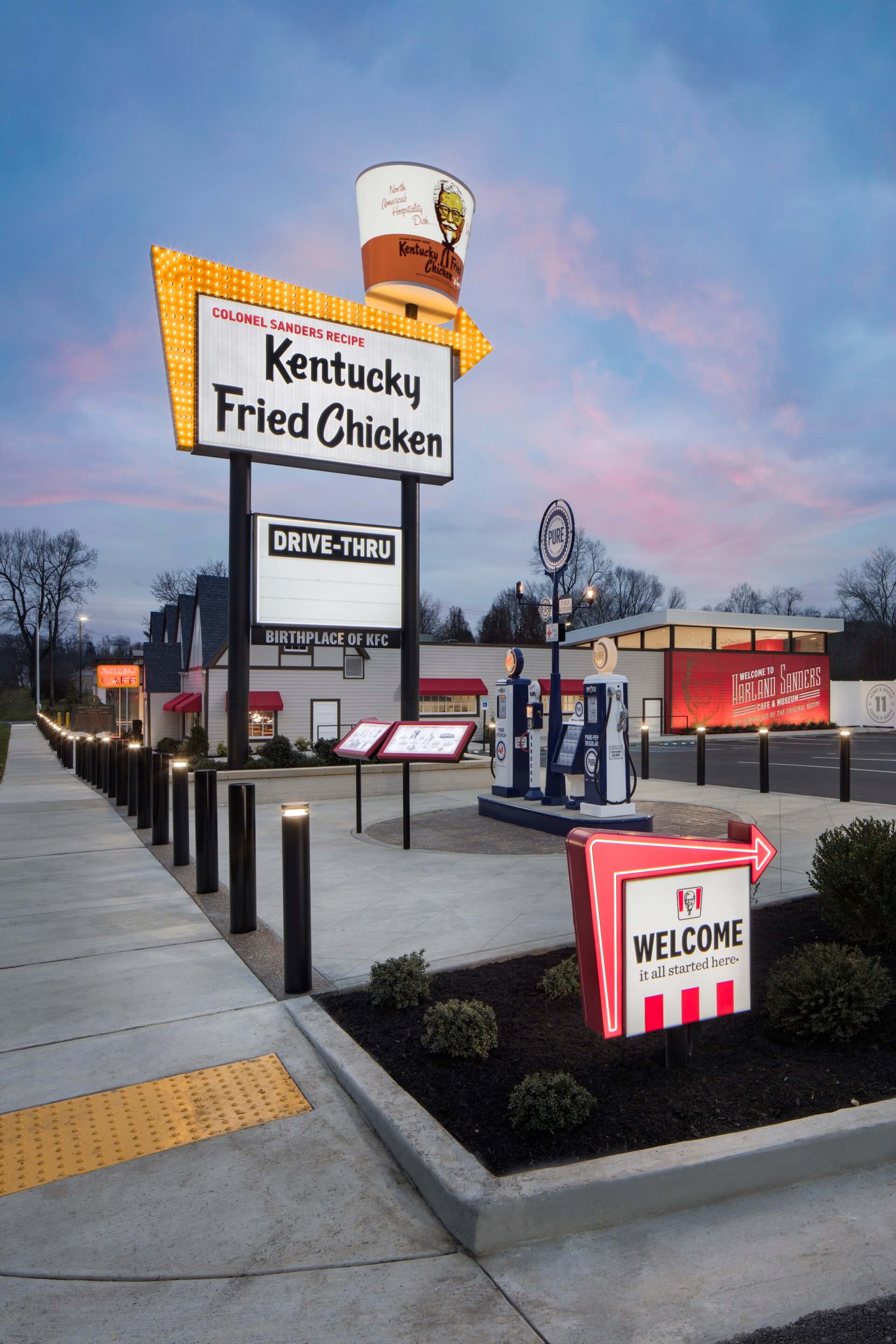
Prior to its makeover, the Sanders Cafe was already a major tourist pit stop in Corbin. Now, as Maggy Monhollen, executive director of Corbin Tourism, explained during a ribbon-cutting ceremony back in April, the site will have even greater appeal to the KFC faithful from around the globe.
“Not only are we going to be able to attract new visitors to our destination,” she said. “We’ll be able to attract repeat visitors. So, people that say I’ve been to the original KFC, we can say no you haven’t.”
It’s worth noting that the Sanders Cafe, while technically not the first-ever KFC outpost, is somewhat of a rare bird as a NRHP-inscribed progenitor to a global fast-food chain. Even the oldest surviving McDonald’s in Downey, California, is not listed (although very much eligible.) As for the first Taco Bell (a.k.a. “Numero Uno”), it was also formerly located in Downey but relocated via truck 45 miles away to corporate headquarters in Irvine in 2015 after being threatened with demolition.






